ERK Inhibitor
Synonym(s):3-(2-Aminoethyl)-5-((4-ethoxyphenyl)methylene)-2,4-thiazolidinedione, HCl;ERK Inhibitor - CAS 1049738-54-6 - Calbiochem
- CAS NO.:1049738-54-6
- Empirical Formula: C14H17ClN2O3S
- Molecular Weight: 328.81
- MDL number: MFCD09038681
- SAFETY DATA SHEET (SDS)
- Update Date: 2024-11-12 15:22:20
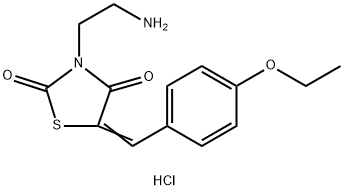
What is ERK Inhibitor?
Description
ERK inhibitor is a cell-
What are the applications of Application
ERK Inhibitor is a cell-permeable thiazolidinedione compound that shows anti-proliferative properties
General Description
A cell-permeable and reversible thiazolidinedione compound that displays anti-proliferative properties (IC50 ≤ 25 μM in HeLa, A549, and SUM-159 tumor cells). Preferentially binds to ERK2 with a KD of ~5 μM and prevents its interaction with protein substrates. Shown to block ERK-mediated phosphorylation of ribosomal S6 kinase-1 (RSK-1) and ternary complex factor Elk-1 in HeLa cells, while exhibiting little effect on ERK1/2 phosphorylation by MEK1/2.
Biochem/physiol Actions
Primary TargetERK
Properties of ERK Inhibitor
| storage temp. | +2C to +8C |
| solubility | DMSO: 2 mg/ml |
| form | Light yellow solid |
| color | Off-white to yellow |
Safety information for ERK Inhibitor
Computed Descriptors for ERK Inhibitor
New Products
(S)-3-Aminobutanenitrile hydrochloride 4-Methylphenylacetic acid N-Boc-D-alaninol N-BOC-D/L-ALANINOL Tert-butyl bis(2-chloroethyl)carbamate 3-Morpholino-1-(4-nitrophenyl)-5,6-dihydropyridin- 2(1H)-one Furan-2,5-Dicarboxylic Acid Tropic acid 1-Bromo-3,5-Di-Tert-Butylbenzene S-2-CHLORO PROPIONIC ACID ETHYL ISOCYANOACETATE 2-Bromo-1,3-Bis(Dimethylamino)Trimethinium Hexafluorophosphate 4-IODO BENZOIC ACID 3-NITRO-2-METHYL ANILINE 1-(2,4-DICHLOROPHENYL) ETHANAMINE (2-Hydroxyphenyl)acetonitrile 4-Bromopyrazole 2-(Cyanocyclohexyl)acetic acid 4-methoxy-3,5-dinitropyridine 1-(4-(aminomethyl)benzyl)urea hydrochloride 2-aminopropyl benzoate hydrochloride diethyl 2-(2-((tertbutoxycarbonyl)amino) ethyl)malonate tert-butyl 4- (ureidomethyl)benzylcarbamate Ethyl-2-chloro((4-methoxyphenyl)hydrazono)acetateRelated products of tetrahydrofuran
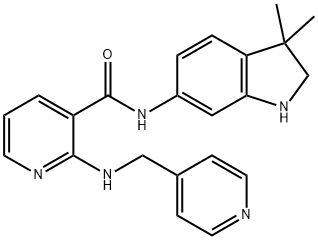

![2-[(6-Amino-9H-purin-9-yl)methyl]-5-methyl-3-(2-methylphenyl)-4(3H)-quinazolinone](https://img.chemicalbook.in/CAS2/GIF/371242-69-2.gif)
![N-[4-[5-(1,3-BENZODIOXOL-5-YL)-3-METHOXY-1H-1,2,4-TRIAZOL-1-YL]PHENYL]-2-(PHENYLTHIO)ACETAMIDE](https://img.chemicalbook.in/CAS/GIF/853625-60-2.gif)
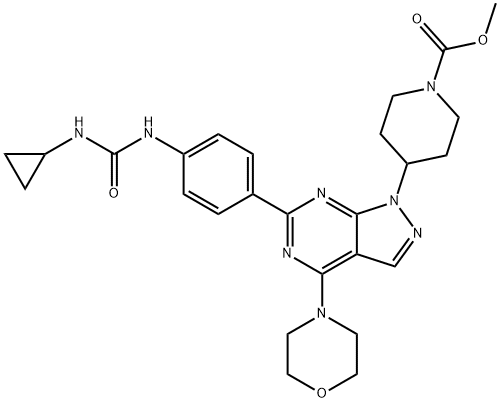
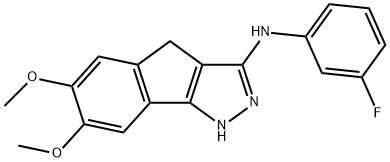
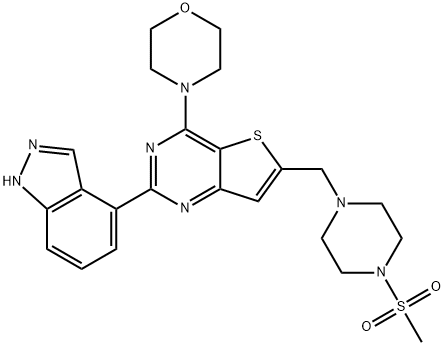
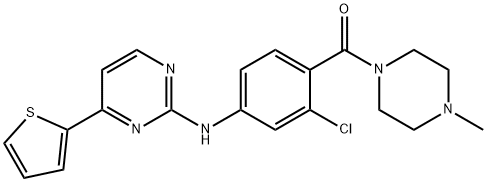
You may like
-
 2033-24-1 98%View Details
2033-24-1 98%View Details
2033-24-1 -
 42831-50-5 5-METHYLISOXAZOLE-4-CARBOXYLIC ACID 98%View Details
42831-50-5 5-METHYLISOXAZOLE-4-CARBOXYLIC ACID 98%View Details
42831-50-5 -
 1975-50-4 98%View Details
1975-50-4 98%View Details
1975-50-4 -
 2-HYDROXY BENZYL ALCOHOL 98%View Details
2-HYDROXY BENZYL ALCOHOL 98%View Details
90-01-7 -
 2-Chloro-1,3-Bis(Dimethylamino)Trimethinium Hexafluorophosphate 221615-75-4 98%View Details
2-Chloro-1,3-Bis(Dimethylamino)Trimethinium Hexafluorophosphate 221615-75-4 98%View Details
221615-75-4 -
 61397-56-6 CIS BROMO BENZOATE 98%View Details
61397-56-6 CIS BROMO BENZOATE 98%View Details
61397-56-6 -
 14714-50-2 (2-Hydroxyphenyl)acetonitrile 98+View Details
14714-50-2 (2-Hydroxyphenyl)acetonitrile 98+View Details
14714-50-2 -
 118753-70-1 98+View Details
118753-70-1 98+View Details
118753-70-1